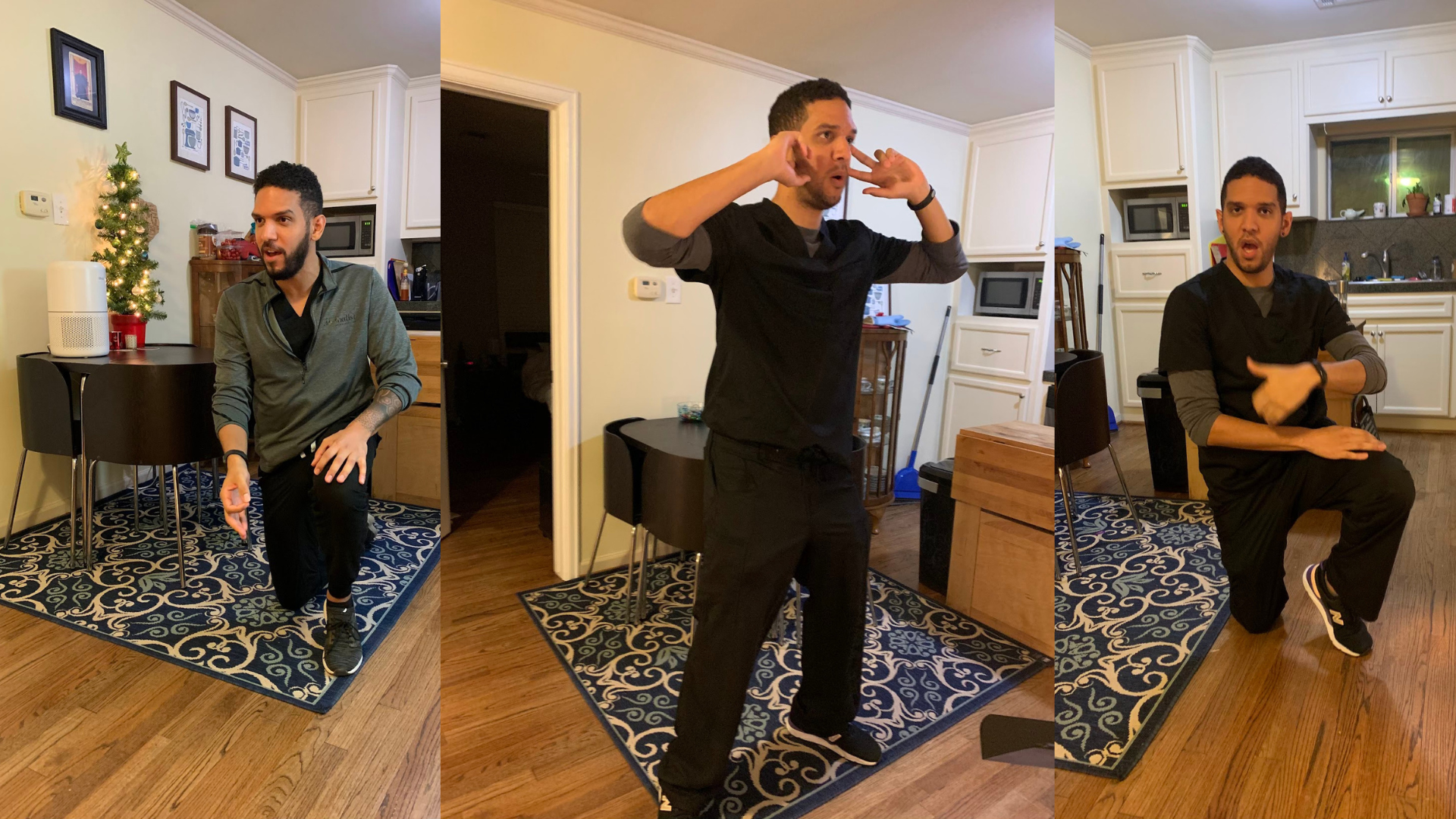Rediscovering Voice: Maurice’s Perspective
Here at VoiceProEd, Anna and I are often asked from folks just starting their work with singers, “How do I learn how to integrate my didactic knowledge of the voice with the experience of applying it into the voice session with my singing clients?” After entering my own clinical practice back in 2017, I had similar worries and questions.
As a speech pathologist specializing in voice disorders, my journey has been deeply intertwined with both the science of voice and the art of performance. My undergraduate studies in voice performance laid a foundational passion for vocal expression, but it was during my subsequent years in graduate school for speech pathology that my focus shifted more clinically. I spent years deep diving in the anatomy, function, and physiology of the entire voice and speech mechanism. During this time, in graduate school I took a big break from studying voice as I focused my energy towards what it meant to be a clinician. However, returning to voice lessons after graduate school not only renewed my love for performance but significantly enhanced my professional practice.
Using kinesthetic tools for singing during a voice lesson in Anna’s old apartment
In my early years as a clinician, diving back into voice lessons was not initially about enhancing my therapeutic skills—it was a personal indulgence. Yet, this decision became a pivotal learning experience. My voice teacher (and now business partner Anna Diemer!) who shared a profound interest in the intricacies of voice function and anatomy, became a collaborative beacon in my career and voice journey. Our sessions often morphed into exciting discussions about the physiological mechanics behind each vocal exercise.
These lessons highlighted aspects of voice production that were not emphasized in my clinical and academic speech pathology training. For example, learning to navigate the subtleties of breath control and resonance provided me with a richer vocabulary and a suite of techniques that I could tailor to the unique challenges faced by my clients as a new SLP. This hands-on exploration of voice allowed me to make intricate connections between theory and practice, connections that were sometimes overlooked in the more structured environment of academic learning.
Moreover, revisiting voice training reminded me of the importance of patience and the individualized nature of learning. Anna reminded me that each voice is unique; thus, our approach to therapy must be equally bespoke. This understanding has become a cornerstone of my practice (and our belief here at VoiceProEd), especially when helping clients navigate their challenges with their voice. The patience to allow each voice to find its strength and the flexibility to adapt to each client’s pace are lessons that were vividly reinforced through my personal experiences in voice lessons.
Collaborating with a voice teacher who was equally fascinated by voice science fostered an environment where knowledge flowed freely in both directions. This partnership not only enhanced my clinical techniques but also led to numerous joint projects; this was the birth of VoiceProEd! Together, we've been able to blend the art of voice performance with the science of speech pathology in ways that amplify the strengths of both fields. This journey back to voice lessons taught me more than I anticipated. It reinforced the idea that continuous learning and curiosity can significantly enhance one’s professional capabilities.
For fellow speech pathologists, voice teachers, and vocal health specialists, I cannot overstate the value of engaging deeply with the art form at the heart of our field. Whether through taking voice lessons yourself or collaborating closely with those who teach them, the insights gained are invaluable. They not only enhance our understanding of voice mechanics but also strengthen our ability to guide others in finding their voice potential.

